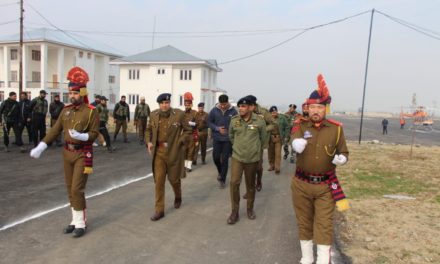![]()
‘High fever most common symptom, no need to panic but follow CAB’
Jahangeer Ganaie
Srinagar, Jan 22 : The number of children requiring hospitalisation due to Covid-19 is on the rise in J&K in the third wave while only a fraction of children affected by the infection need hospital admission, doctors said.
Noted Paediatrician Dr Riyaz Malik while talking with the news agency—Kashmir News Observer (KNO) said that as compared to first and second the number of hospitalisation in third wave have increased but the situation is very much under control.
He said that what we are witnessing is that more fever is the most common symptom in children in this wave as compared to the first two waves.
He further added that besides fever, it involves the upper respiratory tract as well and there is need to follow Covid Appropriate Behaviour (CAB) in letter and spirit besides that those who are eligible for vaccination should go for vaccination.
He said that one small fraction of children need hospitalisation and parents are advised to give one paracetamol in fever to children and should avoid over medications, especially antibiotics.
Malik said that those children who need hospitalisation get fine in three or four days and there is no need to worry “but parents must keep vigil on their children and give them fruits and a balanced diet.”
Doctors said that symptoms in children include high grade fever, vomiting, poor oral intake and watery stool. “Most of these subside with symptomatic management at home itself,” they said.
One of the potential complications of Covid in children is multi-system inflammatory syndrome, they said while advising parents to keep a close watch for fever, sore throat, running nose and cough.
A very small percentage of children may also develop pneumonia, fast breathing and low levels of oxygen saturation, they said, adding that it was important to watch out for warning signs such as difficulty in breathing, fast or shallow breathing, blue lips or face, chest pain or pressure or the inability to awaken or not interact when awake in children suffering from mild to moderate illness.
“Such patients may require immediate medical attention,” they said—(KNO)
























